第67章
"Like Hezekiah's, backward runsThe shadow of my days."Thirty-two of the thirty-four did not know what that meant.The meaning of the line,"For I have flung thee pearls and find thee swine," was utterly obscure to twenty-two of the thirty- four.One of them said it was a reference to "good opportunities given but not improved." Another said it was equivalent to the counsel "not to expect to find gold in a hay-stack." Even the line,sun,"
"A Jonah's gourdUp in one night, and due to suddenwas utterly baffling to twenty-eight of the thirty-four.One of them spoke of it as an "allusion to the uncertainty of the length of life." Another thought it was a reference to "the occasion of Jonah's being preserved by the whale." Another counted it "an allusion to the emesis of Jonah by the whale." Another considered it a reference to "the swallowing of Jonah by a whale," and yet another considered that it referred to "things grand, but not worthy of worship because they are perishable." It is amazing to read that in response to Tennyson's lines,"Follow Light and do the Right--for man can half control his doom-- Till you find the deathless Angel seated in thevacant tomb,"only sixteen were able to give an explanation of its meaning! The lines from the "Holy Grail" were equally baffling:
"Perhaps like Him of Cana in Holy Writ,Our Arthur kept his best until the last."Twenty-four of these thirty-four young men could not recall what that meant.One said that the keeping of the best wine until the last meant "waiting till the last moment to be baptized!"All that may be solely the fault of these young men.Professor Lounsbury once said that his experience in the class-room had taught him the infinite capacity of the human mind to withstand the introduction of knowledge.Very likely earnest effort had been made to teach these young men the Bible; but it is manifest that they had successfully resisted the efforts.If Tennyson were the only poet who could not be understood without knowledge of the Bible, it might not matter so much, but no one can read Browning nor Carlyle nor Macaulay nor Huxley with entire intelligence without knowledge of the greater facts and forces of Scripture.The value of the allusions can be shown by comparing them with those of mythology.No one can read most of Shelley with entire satisfaction without a knowledge of Greek mythology.That is one reason why Shelley has so much passed out of popularity.We do not know Greek mythology, and we have very largely lost Shelley from our literary possession.The chief power of these other great writers will go from us when our knowledge of the Scripture goes.
The danger is not simply with reference to the great literature of the past.There is danger of losing appreciation of the more delicate touches of current literature, sometimes of a complete missing of the meaning.An orator describing present political and social conditions used a fine phrase, that "it is time the nation camped for a season at the foot of the mount." Only a knowledge of Bible history will bring as a flash before one the nation in the desert at Sinai learning the meaning and power of law.Yet an intelligent man, hearing that remark, said that he counted it a fine figure, that he thought there did come in the life of every nation a time before it began its ascent to the heights when it ought to pause and camp at the foot of the mountain to get its breath! After Lincoln's assassination Garfield stood on the steps in New York, and said: "Clouds and darkness are around about him! God reigns and the government at Washington still lives!"Years after, some one referring to that, said that it was a beautiful sentence, that the reference to "clouds and darkness" was a beautiful symbolism, but that Garfield had a great knack in the building-up of fine phrases! He lacked utterly the background of the great Psalm which was in Garfield's mind, and which gives that phrase double meaning.If we go back to Tennyson again, some one has proposed the inquiry why he should have called one of his poems "Rizpah," since there was no one of that name mentioned in the whole poem! When, some years ago, a book was published, The Children of Gideon, one of the reviewers could not understand why that title was used, since no one of that name appeared in the entire volume.And when Mrs.Wharton's book, The House of Mirth, came out some one spoke of the irony of the title; but it is the irony of the Scriptures and the book calls for a Scriptural knowledge for its entire understanding.
Take even an encyclopedia article.Who can understand these two sentences without instant knowledge of Scripture? "Marlowe and Shakespeare, the young Davids of the day, tried the armor of Saul before they went out to battle, then wisely laid it off." "Arnold, like Aaron of old, stands between the dead and the living; but, unlike Aaron, he holds no smoking censor of propitiation to stay the plague which he feels to be devouring his generation."[1] That is in an encyclopedia to which young people are often referred.What will they make out of it without the Bible? In a widely distributed school paper, in the question-and-answer department, occurs the inquiry: "Who composed the inscription on the Liberty Bell?" The inscription is, "Proclaim liberty throughout all the land to all the inhabitants thereof."[2] It is to be hoped it was a very young person who needed to ask who "composed" that expression!
[1] New International Encyclopedia, art.on English Literature.[2] Current Events, January 12, 1912.